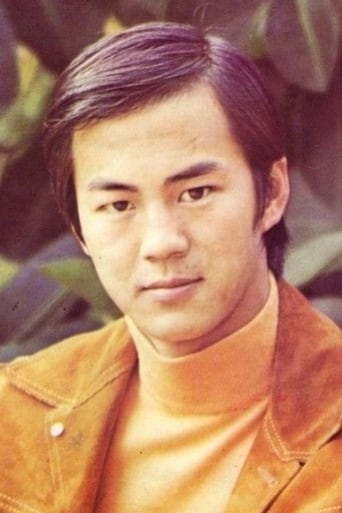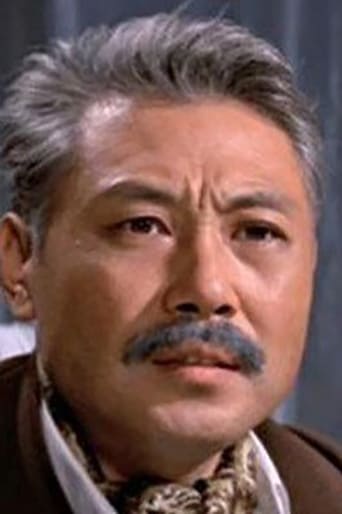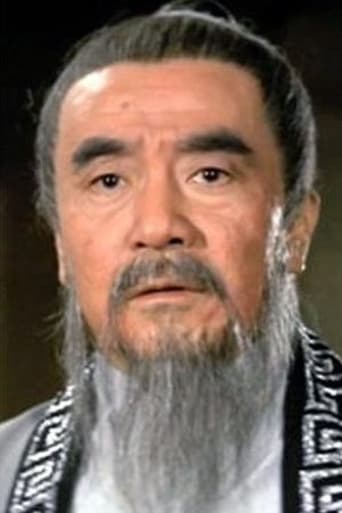Marva
It is an exhilarating, distressing, funny and profound film, with one of the more memorable film scores in years,
poe426
When twenty-one year old Ling (David Chiang) takes up with sixteen-year-old singer Cindy (who's actually FIFteen years old, though she looks even younger), the proverbial **** hits the fan. Ratted out by a baby-faced Fu Sheng, Ling is labeled a "Teddy Boy" (a guy who lives off of a woman, apparently) and things start to slide downhill fast. When Ling's brother Zhao (Ti Lung, wearing a pair of glasses that would give Clark Kent pause) returns home from school for the summer, he sets things "right" by forcibly returning Cindy to her family. Ling takes up with a gang of ne'er-do-wells and his downward slide picks up speed. THE GENERATION GAP isn't a bad movie, though it's a departure from the kind of Chang Cheh fare I'm used to. It's VERY well-crafted and acted and belongs right up there alongside THE WILD ONE and REBEL WITHOUT A CAUSE. Check it out.
Brian Camp
THE GENERATION GAP (1973) is one of a series of contemporary dramas about Hong Kong youth made in the early 1970s at the Shaw Bros. studio by master kung fu director Chang Cheh and cast with familiar faces from his kung fu movies. Here David Chiang stars as Ling Xi, a rich boy who blows off a chance to study in London so he can hang around at home fixing cars, much to the dismay of his status-conscious father (Lu Ti). He's in love with a teenage girl, Cindy (Agnes Chan), whose parents disapprove of her desire to be a singer and forbid her to see Ling Xi. Eventually the two lovers run away and set up house in a shabby apartment, barely supporting each other while she sings in a club and he fixes cars at a garage. During all this time they maintain quite a chaste love affair, sleeping separately and never even kissing. (He is 21 and she is only 15.) When Ling Xi's successful older brother (Ti Lung) comes home, he tries to straighten his brother out and return Cindy to her parents. The resulting chain of events leads Ling Xi to jail and the company of a bad crowd. His constant mantra is "I didn't do anything wrong." The first half of the film is pretty much focused on cute and perky young Cindy, played by 17-year-old Agnes Chan, who was a popular singer in Hong Kong and Japan at the time and who sings at least five songs, either performed at the club or heard on the soundtrack. All the songs are in English, but only one was familiar to me ("Everyone's Gone to the Moon"), although I'm guessing the others, filled with teenybopper sentiments like, "It's a new beginning, it's a brand new start," "You are 21, I am 16," "All my life's a circle," and "I have a never-ending love for you," were covers as well. (I've since learned that the last line is from "Never Ending Song of Love," originally performed by the New Seekers.) In her previous film, YOUNG PEOPLE, Agnes sang Joni Mitchell's "The Circle Game" and Carole King's "You've Got a Friend."The final third of the film is dominated by Ling Xi's dissipation and his turn to a life of crime with a band of lowlifes led by frequent kung fu villain Chiang Tao. There's kung fu throughout the movie also, since Ling Xi turns out to be a kung fu expert and gets into several fights, starting early when a bunch of hoods in cars drive up on him and Cindy at a highway lookout point at night and he has to fend them off. He even gets into brawls at Cindy's club and fights his brother (played by David's frequent co-star, Ti Lung) outdoors in one intense scene. It all culminates in a sprawling battle between David and his new gang buddies at a dramatic waterfront site in the harbor.Through it all, there are some powerful emotional scenes of the two characters confronting their fathers and other adult figures. Cindy's father (Yang Chih-ching) is quite harsh and even breaks Cindy's guitar into pieces in an early scene, setting the emotional stage for much of what follows. Ling Xi's father (Lu Ti) is much more understanding and clearly desirous of a close relationship with his son. That Ling Xi seems to take him for granted is part of the problem. We don't necessarily side with the two lovers, nor do we turn against their parents. These aren't cardboard characters. There is even a sympathetic former classmate of Ling Xi's (played by Chiang Liang), who tries to help him, but he rejects her efforts.Overall, this is a much better written and conceived work than the other contemporary dramas directed by Chang Cheh that I've seen, although I would really only compare it to DEAD END (1969) and YOUNG PEOPLE (1972), both also reviewed on this site. Like DEAD END, it also seems to have drawn inspiration from the James Dean classic, REBEL WITHOUT A CAUSE (1955).The film is listed as "Generation Gap" on IMDb although the title on screen definitely adds the article and reads "The Generation Gap." But if you type in "The Generation Gap" on IMDb, you get a 1969 game show.





